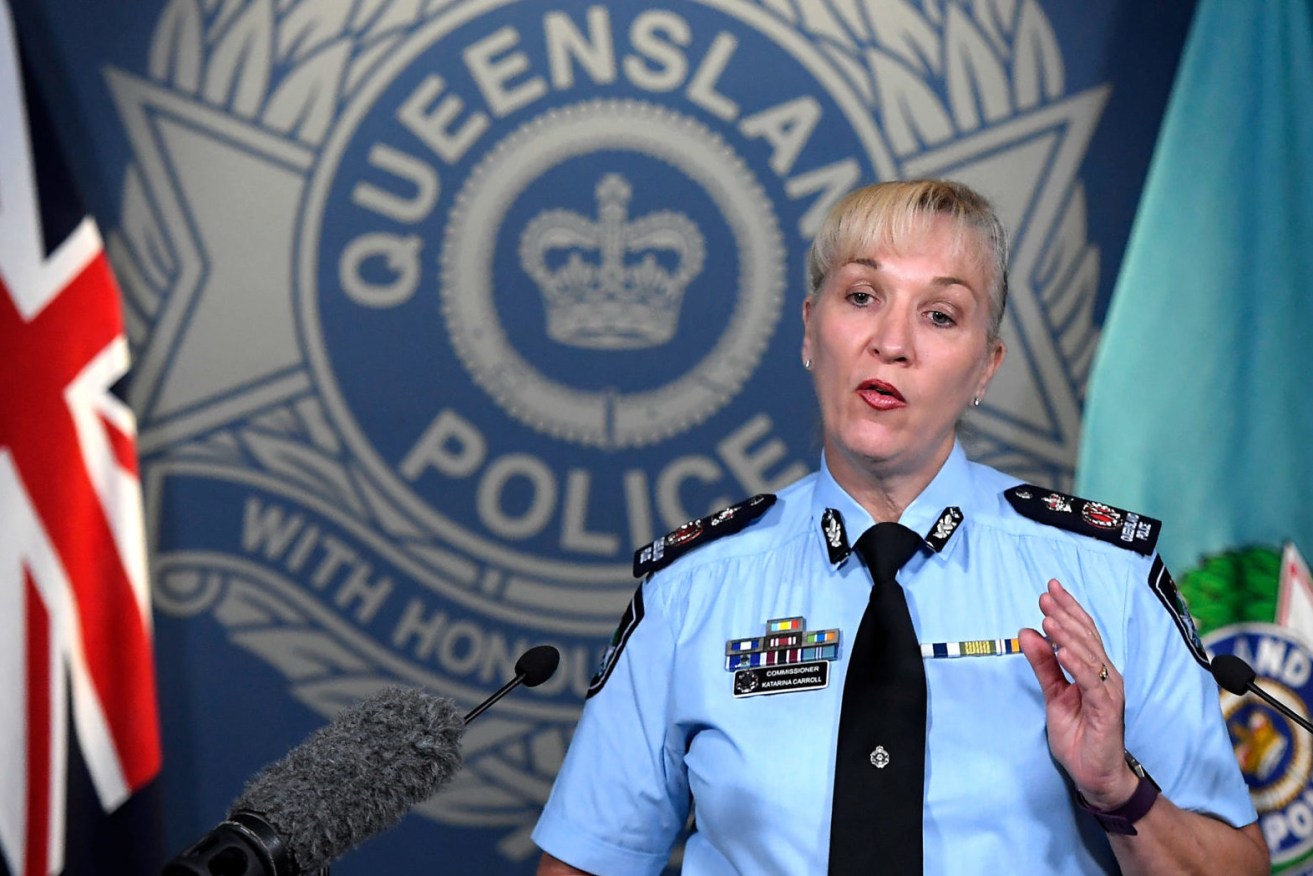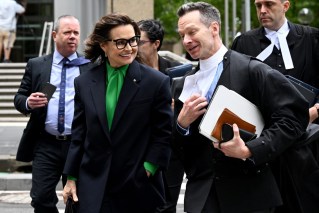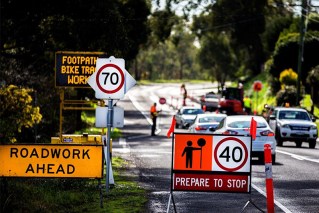Fair cop: Would Queensland’s Police Commissioner still have her job if she was male?
The Commission of Inquiry set up to examine the culture of Queensland Police, particularly towards female complainants, has laid bare some uncomfortable truths – including about the performance of Commissioner Katarina Carroll. Has her gender helped save her from further scrutiny? asks Madonna King


Queensland Police Commissioner Katarina Carroll . (Photo: AAP Image/Albert Perez)
If Queensland police commissioner Katarina Carroll was a male, would she still have her job?
That’s a fair question in the wake of her baffling evidence last week to the Commission of Inquiry set up to examine how the police officers she is responsible for deal with domestic violence.
The allegations and accusations against some police are heart-breaking, sexist, misogynistic, racist and downright unprofessional.
Perhaps even more alarming is that the police response, in other cases, has worsened situations and failed to protect victims who desperately sought their help. Few of us can forget Doreen Langham, for example, who spoke to 16 different police officers before the monster, who was her ex-partner, set her home alight.
The reason this inquiry was set up was to explore how police respond in cases of domestic violence, and it has highlighted how a culture of sexism and misogyny has now permeated the service and muted the fight against family violence.
But last week that examination of culture turned on how the service is being led, and that put Katarina Carroll, who took on the job more than three years ago, in the hot seat.
It should be pointed out that she had not intended to front the inquiry; indeed, she rejected an invitation to appear and only attended after the threat of a summons was raised.
Just imagine, for a moment, if a male police commissioner refused to attend a royal commission looking into his staff’s treatment of domestic violence, and particularly women. Imagine the outcry. And perhaps the consequences for him.
But what we saw last week travels further than a reluctance to attend any inquiry.
Carroll also admitted, as Commissioner, she was unaware of extensive delays in training manuals, that other damaging revelations were “not a good look’’, that the language used by officers “should not occur’’ and that she was upset and appalled by a culture – which seems to have worsened under her leadership.
But more damaging was her response to two specific incidents where senior officers showing an appalling lack of judgement: one called a friend a “vagina whisperer’’, and the other, at a public conference, yelled “did she shut her legs on you?’’
The context isn’t worth repeating. And Carroll told the inquiry that latter comment by a superintendent was “deeply disrespectful and it is misogynistic’’.
So why – when she was aware of that incident – was he later promoted to chief superintendent? And how would the CEO of a big company be seen if they allowed a promotion, with that knowledge?
That is just difficult to get past, and goes to the heart of both culture and leadership.
Both those senior male police officers have had their careers effectively ended by these public revelations – but the behaviour of their female leader, who was fully aware of that incident and allowed the promotion – is not being judged.
(Well it is if you talk to some of those wonderful volunteers protecting women from domestic violence; but not by our political leaders who determine how long she stays in the job)
Asked if she accepted a real problem around misogyny and disrespect in the service she runs, Carroll’s answer was unequivocal: Yes. Indeed, she said it was unacceptable that the service did not meet the standards of society, and it was unacceptable, also, that police had let victims down.
So what’s her role there? And is she being judged in the same way a male would?
Or even other females. London Metropolitan police chief Cressida Dick was forced to quit earlier this year after the Independent Office for Police Conduct revealed a culture of misogyny and racism in the service there.
And remember the criticism levelled at former former Victorian police chief Christine Nixon after she left a fire control centre to have a pub dinner on the evening of the Black Saturday bushfires?
A culture cannot be overturned in weeks or months, or even a few years. But Carroll can’t have it both ways: she can’t claim this behaviour only belongs in a fraction of the force, but that it is too early to see any real gains in culture.
She is no doubt clever, strategic, and hard-working. She’s good company, done many of the hard jobs on the way up to the top office, and is a master communicator.
Commissioner Carroll recently signalled she wants an extension on her contract for a couple of more years to ensure she is able to implement recommendations like those that will be brought down in this inquiry report, due in October.
Perhaps she deserves it. But last week was not one that shines on her work record.
And it would be one that would almost certainly end the career of a male peer.













